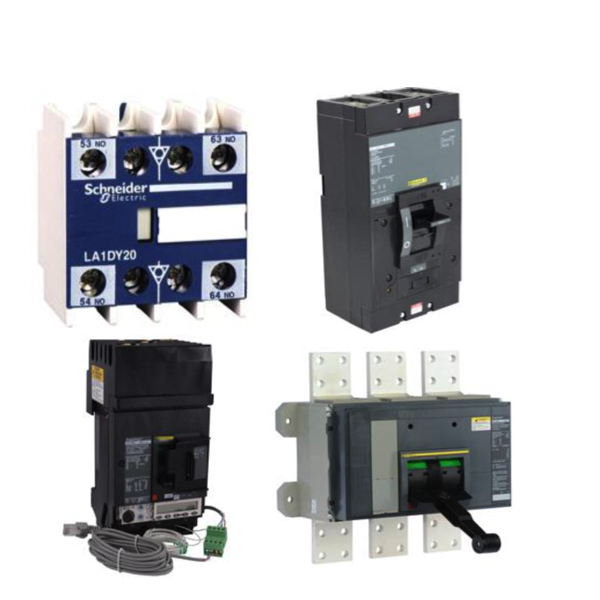
Molded Case Circuit Breakers

Molded case circuit breakers (MCCBs) provide overcurrent and short circuit protection for electrical systems in residential, commercial, and industrial settings. They are designed and tested for use in a variety of applications where reliable and safe operation under conditions of fault or excessive current flow is essential for electrical system integrity. With their robust molded case design, MCCBs are highly durable and capable of withstanding the demands of a wide range of applications—everything from branch circuit protection in a home to high-capacity circuits in an industrial environment.
MCCBs usually have thermal-magnetic mechanisms or electronic trip units for exact and effective protection. Thermal-magnetic MCCBs employ thermal overload protection elements and magnetic elements for short-circuit protection. These basic mechanisms still provide the kinds of versatile, dependable, and multipurpose features that make MCCBs suitable for a range of uses.
Subcategories
Products
More Information about Molded Case Circuit Breakers
One of the principal benefits of molded case circuit breakers is their competence in managing overcurrent protection while sustaining dependable performance and ensuring safety. With a complete range of ratings and frame sizes, MCCBs are well suited to circuits of all sorts and with all kinds of current capacities and demands.
What is a Circuit Breaker?
There are two different types of technologies that are commonly used in circuit breakers.
Magnetic Breakers
Magnetic Breakers are designed to react to short circuits or sharp spikes in voltage and current. The more current that passes through the breaker’s electromagnet, the stronger the magnet becomes. When the current exceeds the rating for that particular breaker, the magnetic force becomes strong enough that it will pull the contact back and disconnect it from the other contact, disconnecting power from the device.
Thermal Protection Breakers
Thermal Protection Breakers protect against a sustained overcurrent, or a higher current, for a longer period of time. Thermal protection uses a Bimetal strip that will bend the contacts away from each other to disconnect power. Thermal Magnetic Breakers are the most common type of circuit breakers. They combine magnetic technology to protect against short circuits or sharp spikes and thermal technology that protects against sustained overcurrent for a long period of time.

